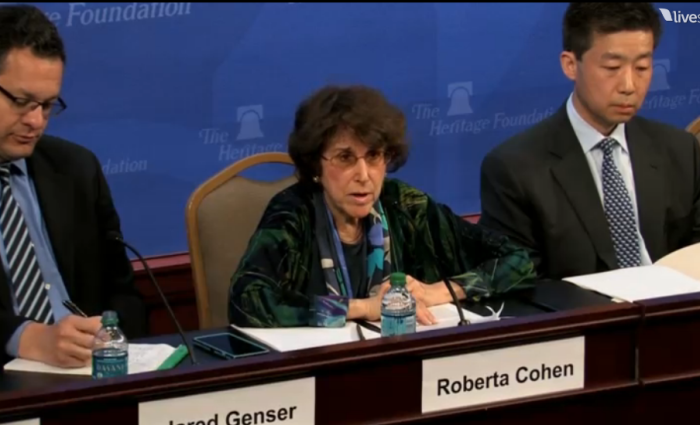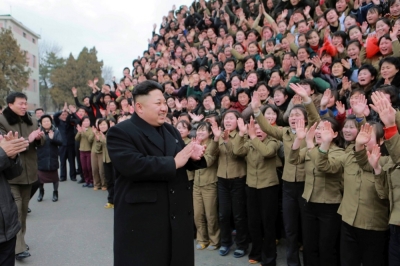30,000 North Korean Defectors Reveal Extent of State's Crimes Against Humanity, Says Human Rights Activists

An expert on human rights activism in the Communist state of North Korea believes progress is being made in the push to reform the Asian nation.
Jared Genser, a human rights attorney who serves as managing director of Perseus Strategies and founder of Freedom Now, said while part of a panel that human rights activism has come "a very long way."
At an event sponsored by the Heritage Foundation on Tuesday afternoon, Genser noted that there were improvements in the situation, stemming in part because of the growth in information over the past 15 years.
"If we look back 15 years, we only had the first defectors coming out of North Korea, refugees coming out of North Korea and finding themselves in Seoul back in the year 2000. There were a hundred or less," said Genser.
"Today, we have 25-30,000 or more. And back then we knew that things were terrible in North Korea, but we did not have the data or the information or the stories to be able to explain how bad things really were in North Korea."

Genser also noted before an audience watching both in person and online that there was a growth in reports by human rights groups during the 2000s and that today progress has been made on the issue.
"Although I do not believe that this has had a great impact on the life of the average North Korean person, in terms of engaging the international community we have come, actually, a very long way," said Genser.
"From where people were unable to speak with any authority about what was actually happening in North Korea not only understanding it, processing it, and then analyzing it and explaining what was really going on, and knowledge "
The Heritage Foundation event titled "Maintaining Focus on North Korea Human Rights Violations" was inspired by a United Nations Commission of Inquiry which found North Korea guilty of "systemic, widespread, and gross violations of human rights" of a grand scale that constituted crimes against humanity.
"The commission report shocked and energized the international community to action on North Korean human rights abuses." noted Heritage. "But what can be done to maintain U.S. and U.N. focus on improving conditions for the North Korean people?"
The first panel at the Heritage event was comprised of defectors from the Communist state, namely Kim Seong-min, founder and director of Free North Korea Radio; Choi Jeong-hun, commander with North Korea People's Liberation Front; Lee So-yeon, representative of New Korea Women's Alliance; and Park Kun-ha, representative of the North Korea Intellectuals Solidarity.
In addition to Genser, the second panel included Roberta Cohen, nonresident senior fellow at The Brookings Institution and co-chair of the Committee for Human Rights in North Korea; and Lee Sung-yoon, professor in Korean Studies at The Fletcher School of Tufts University.
Bruce Klingner, senior research fellow of Northeast Asia at The Heritage Foundation, moderated the event and gave opening remarks.
Heritage's two panels come as Congress is mulling a bill that would intensify efforts to economically isolate North Korea, according to The Associated Press.
"The House bill would block dollar-denominated trade or investment deals with North Korea as they pass through the U.S. controlled, dollar-based financial system," reported the AP. "The bill would punish North Korea's enablers by limiting their access to the dollar-based financial market, even on business that doesn't involve North Korea."




























